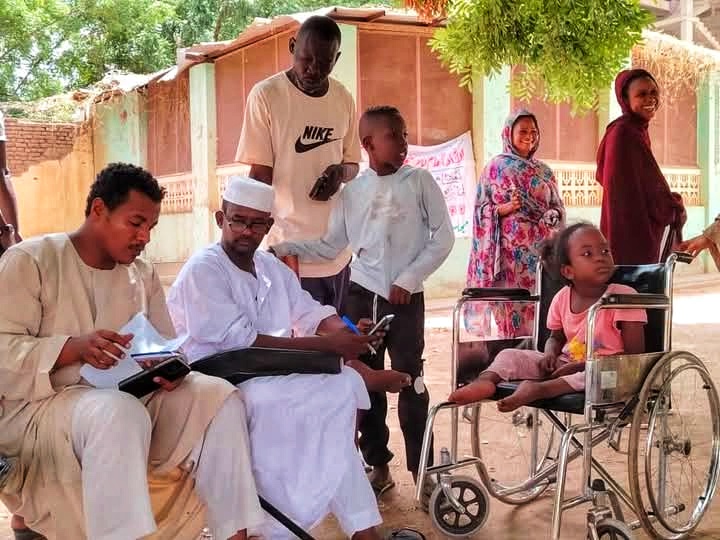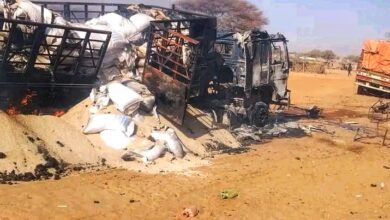Ongoing War Deepens the Suffering of People with Disabilities in Sudan
Report – Mashaweer

As the war in Sudan drags on, the suffering of people with disabilities — including those with mobility, hearing, visual, and intellectual impairments — has worsened, especially with the shutdown of rehabilitation centers that once provided them with medical and educational services.
The ongoing crisis has also led to a breakdown in social and psychological support for individuals with disabilities, many of whom have become stranded — either displaced within Sudan or forced to flee as refugees to neighboring countries.
Crises and Challenges
Social researcher Hussein Mubarak told Mashaweer that “many people with disabilities have suffered immensely during the war, even in cities considered relatively safe. They face great difficulty in accessing information due to a widespread lack of understanding of sign language.”
He added that “some of them, especially in conflict zones, are exposed to life-threatening dangers because they cannot hear the sound of gunfire or shelling — which has claimed the lives of many.”
“Although some are educated,” he continued, “they still face serious barriers in gaining employment in both public and private sectors.”
Out of Service
Since the outbreak of the war between the Sudanese Armed Forces and the Rapid Support Forces (RSF) in mid-April 2023, all institutions that served people with disabilities have ceased operations.
There are approximately 4.1 million people with disabilities in Sudan, representing 4.6% of the population, according to the most recent census conducted in 2008. More recent studies indicate that individuals with hearing impairments make up over 35% of the disabled population — roughly 470,000 people, according to the Sudanese Deaf Association.
Four centers in three different states have issued urgent appeals, citing an influx of displaced persons with disabilities, including deaf and mute individuals fleeing the horrors of war.
Numerous Risks
In this context, psychologist Mohasen Nasr al-Din told Mashaweer that “people with hearing impairments face especially severe challenges amid the ongoing conflict. They are unable to hear news about the war and rely entirely on sign language. Their inability to hear gunfire or artillery leaves them vulnerable and unable to react or protect themselves.”
She stressed that the closure of training and rehabilitation centers has jeopardized their future, noting that many had the potential to develop and recover from the psychological and social pressures they endure. “They urgently need both emotional and financial support to resume their activities, which have been completely halted by the war,” she said.




